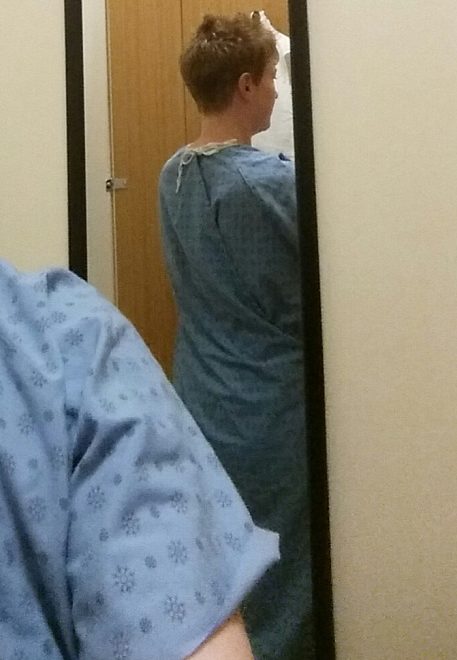We’ve assumed for some time, in health care and bioethics circles, that patients who are active on-line would want eAccess to their own health information.
A study was published last week, which explores the related questions of whether patients really do want this eAccess (they do!) and what they would value most about it. (All quotations that follow are from this article; link provided below.)
This particular research focused on the patient visit notes in electronic health records (EHR). It was somewhat limited, being a small-scale and short-term quality improvement pilot project. Nevertheless, the findings are useful as they provide insight into patient values for this type of health information which traditionally hasn’t been available to patients.
It’s true of much in healthcare, particularly medicine, that we’re only now starting to truly consider the impact and weight of patient values. In clinical research ethics, we’ve traditionally taken a rather paternalistic view of research participants; viewing (in my experience at least) the need to protect as sometimes of greater importance than respect for autonomy.
This type of thinking, through the years, has created a situation in which “Even though millions of patients can log on to patient portals to read notes, we understand little about what they value in doing so, perhaps because information sharing has been largely one-way and passive.”
I’ve been raising the issue of extremely low health literacy – in both Canada and the United States – for several years now (primarily on healthcare groups on social media), and believe that giving patients access to their medical information could increase their desire to become more knowledgeable about their health.
If we’ve treated patients paternalistically for decades, we shouldn’t be surprised if there’s now disinterest and passivity among certain groups of patients. We can hardly blame people for adapting to a situation in which they were told what to do, how to do it, and sometimes frowned upon for asking questions and wasting the apparently ‘more valuable’ time of healthcare professionals.
My limited (to research ethics) experience has been that, if given access to understandable information about their health, individuals will tend to be more engaged in their healthcare. This study found exactly that: “Patients and care partners who read notes and submitted feedback reported greater engagement and the desire to help clinicians improve note accuracy”.
The researchers concluded: “patients suggested that an invitation to read notes and use the reporting tool sends a message of inclusivity and empowerment, validating patients as capable change agents”. This is an important step in creating a climate in which health literacy is valued – by patients and caregivers – and clinically valuable in improving health outcomes.
There was also a benefit to physicians, in that although they “worry that computer use during shorter visits can make clinical interactions feel impersonal, patients who read notes liked ‘feeling heard,’ describing a deeper sense of caring and respect, and improved patient-clinician relationships”.
There was also a reference made that this type of tool could make EHR/EMR use more ‘human’ for both clinicians and patients, which could potentially reduce burnout of healthcare professionals (although no data was provided on this theory).
To summarize their findings, 4 themes emerged as to what pilot study patients valued most regarding the specific content of their EHR visit notes:
- Confirm and remember next steps
- Quicker access and results
- Positive emotions
- Sharing information with care partner
The authors separately categorized 4 themes that arose from patients’ use of EHR visit notes, in combination with the feedback tool developed for this pilot project
- Accuracy and correcting mistakes
- Partnership and engagement
- Bidirectional communication and enhanced education
- Importance of feedback
The article isn’t particularly lengthy, and is well worth reading:
https://www.jmir.org/2017/7/e237/

